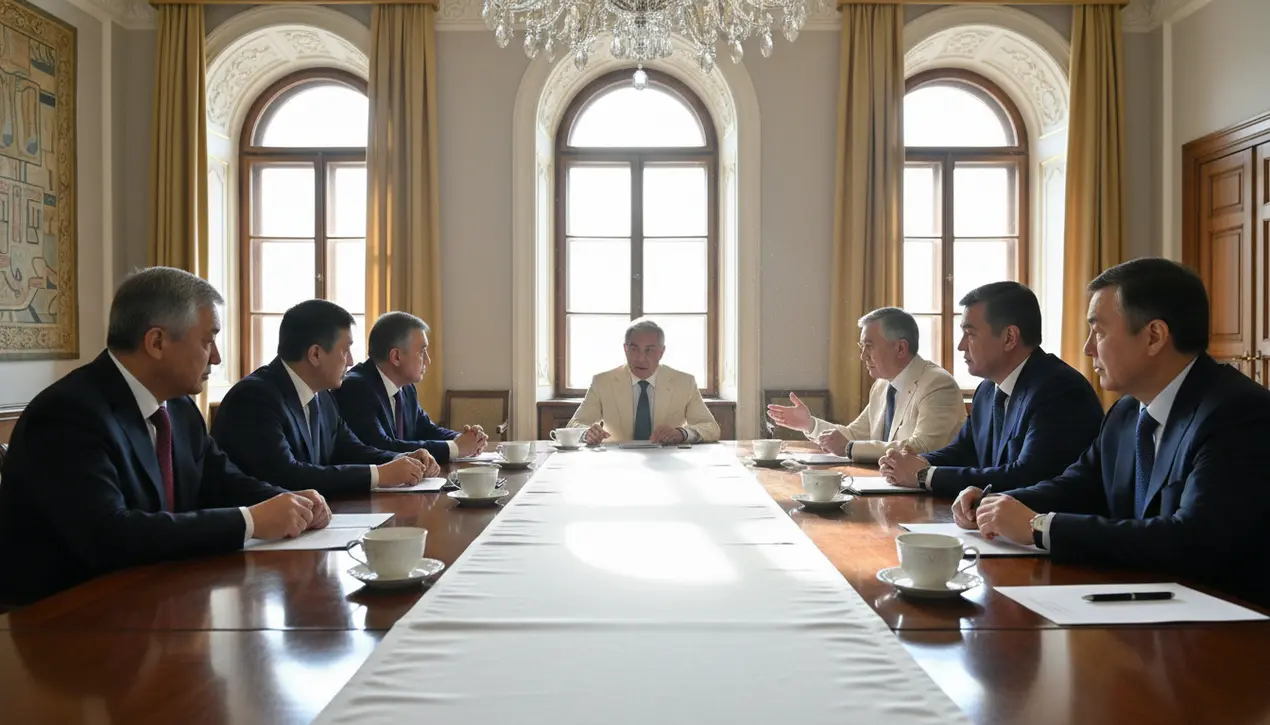
PoliticsdiplomacyMultilateral Summits
Central Asian Leaders Convene in Tashkent for Regional Summit.
RO
Robert Hayes
2 hours ago7 min read
In a move laden with geopolitical significance, the leaders of Central Asia are convening in Tashkent, a summit that veteran observers will recognize as more than a mere diplomatic formality. Uzbekistan’s President, Shavkat Mirziyoyev, has positioned this gathering as a pivotal step toward fostering regional trust and stability—a noble ambition in a part of the world historically characterized by a complex tapestry of rivalries, external influences, and cautious bilateralism.The very fact that such a multilateral meeting is occurring speaks volumes about the shifting sands in a post-Afghanistan, post-pandemic landscape where the traditional hegemon, Russia, is visibly preoccupied with its war in Ukraine, creating a power vacuum that both China and the West are eager to fill. One cannot help but draw a historical parallel to the Congress of Vienna or the more recent formation of the European Coal and Steel Community; these were not merely talks, but foundational moments where a shared desire to avoid conflict and foster economic interdependence began to rewire an entire continent's destiny.For Central Asia, a region comprising Kazakhstan, Kyrgyzstan, Tajikistan, Turkmenistan, and Uzbekistan itself, the challenges are immense: managing shared water resources from the shrinking Aral Sea, combating cross-border security threats from extremist groups, and negotiating the terms of the new 'Great Game' as exemplified by China's Belt and Road Initiative infrastructure projects and Western offers of development aid. President Mirziyoyev, since his rise to power, has pursued a policy of cautious openness, a stark contrast to the isolationism of his predecessor, and this summit is the clearest manifestation of that doctrine.However, the path to genuine integration is fraught with the legacy of Soviet-era border disputes and deeply entrenched economic competition. Analysts from the Carnegie Endowment for International Peace suggest that the real test will be whether these discussions yield concrete, institutionalized mechanisms for cooperation—perhaps a permanent secretariat or a jointly funded development bank—rather than just another communiqué filled with aspirational language.The consequences of failure are stark: continued economic stagnation could fuel social unrest, making these nations vulnerable to manipulation by larger powers. Conversely, success could see Central Asia emerge as a cohesive, strategically autonomous bloc, capable of negotiating its future on its own terms. As Churchill might have remarked, this is not the end, nor even the beginning of the end, but it is, perhaps, the end of the beginning for a region finally attempting to write its own script.
#Central Asia
#regional cooperation
#Tashkent summit
#diplomacy
#trust
#stability
#featured
Stay Informed. Act Smarter.
Get weekly highlights, major headlines, and expert insights — then put your knowledge to work in our live prediction markets.
Related News
Comments
Loading comments...
© 2025 Outpoll Service LTD. All rights reserved.